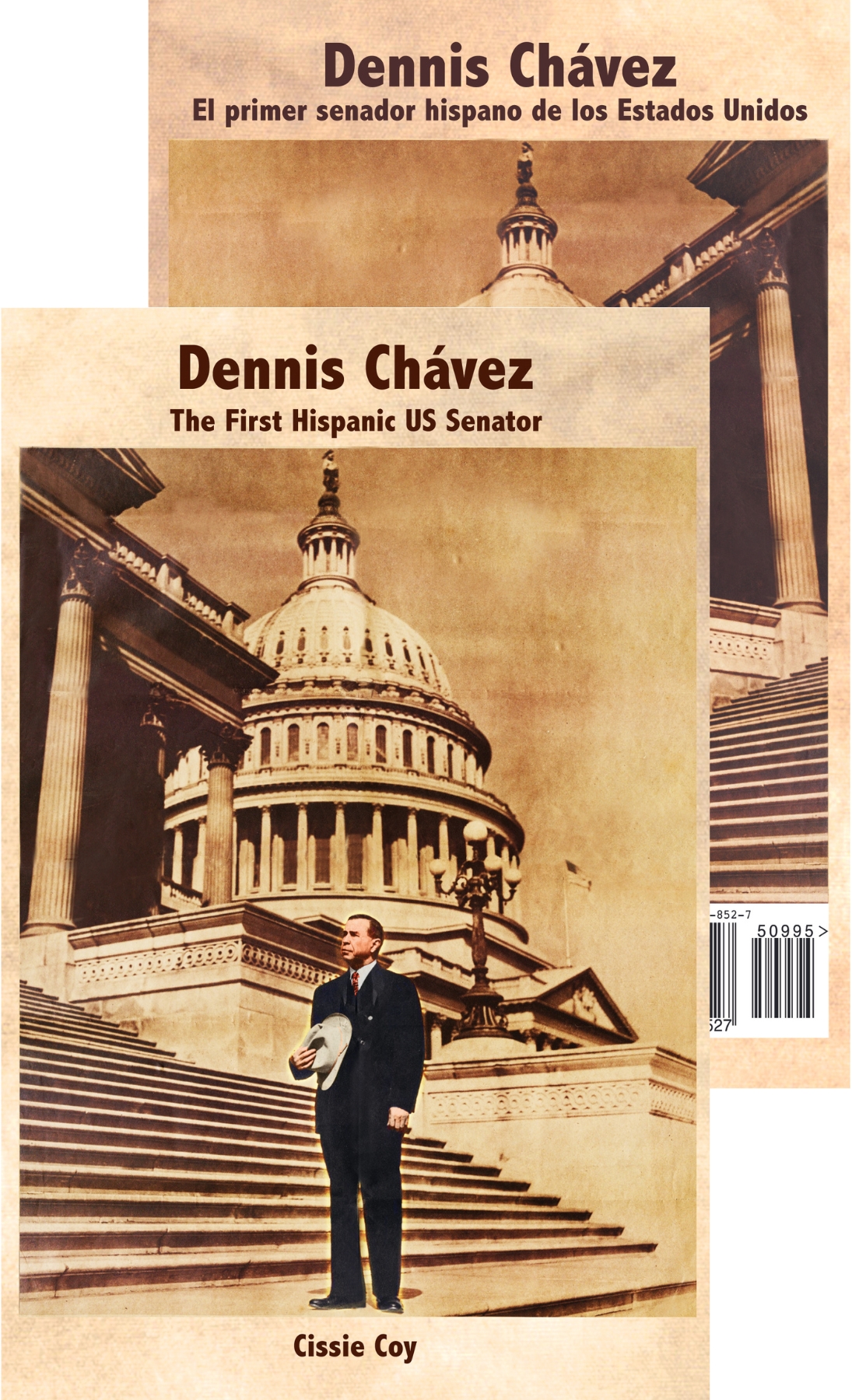Dennis Chávez: The First Hispanic US Senator / El primer senador hispano de los Estados Unidos
$9.95
This informative, bilingual non-fiction book for intermediate readers tells the fascinating story of the first Hispanic US Senator.
by Cissie Coy
ISBN: 978-1-55885-852-7
Publication date: October 31, 2017
Format: Paperback
Pages: 143
Imprint: Piñata Books
Ages: 8-12
Available
Dennis Chávez was born in the small farming community of Los Chávez in 1888 in what was then the Territory of New Mexico. His childhood home had dirt floors and no indoor plumbing. As a boy, he tended his father’s crops and sheep. He spoke only Spanish and never went to high school or college.
This bilingual “flip” book for intermediate readers recounts the inspiring story of Dennis Chávez, who in spite of having to drop out of school in the seventh grade to get a job to help his family, went on to graduate from Georgetown Law School in Washington, DC, and represent New Mexico in the US Senate for twenty-seven years.
Dennis Chávez saw and experienced injustice from an early age. When he refused to deliver groceries to railroad strike breakers, he lost his first job. This first-hand involvement with labor conflicts fanned his interest in both law and government, and throughout his long career he consistently supported workers, minorities and regular people. He fought against the “whites only” practices that were rampant in the South, introducing legislation to ban discrimination in hiring, saying “Either we are all free, or we fail; democracy must belong to all of us.” Holding strong to his beliefs of fairness and justice, he spoke out against McCarthyism on the Senate floor. Senate seniority gave Chávez powerful responsibility over the US budget for military defense and public works projects such as the remaking of the nation’s highways.
Spanning American history from 1888-1962—from the frontier where Indian raids were still common to the country’s power-filled corridors in Washington, DC—this book written by his granddaughter will give young readers an eye-opening look at the difficulties faced by non-whites and the intolerance that was common as recently as the latter half of the twentieth century and is still an issue today.









